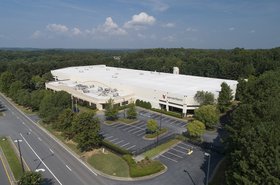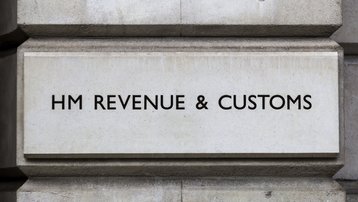Two High Court judges in the UK were investors in a controversial data center project accused of being used as a tax scheme.
The Financial Times uncovered the investment, as well as a number of other investments from judges in similar projects. The investment by Justices Simon Bryan and Martin Griffiths was made before they were appointed to their roles, but after they began their judicial careers.
Tax avoidance is not illegal, but can be pursued by authorities.
The investment focused on two data centers in Tyneside that took advantage of an initiative meant to revive depressed areas of the UK. The Cobalt Data Centres 2 and 3 project raised £79 million in 2011 from 675 people, who then received £131 million in tax relief.
But the facilities sat empty for years, leading to claims that they were only built to get the tax breaks - which backer Harcourt Capital contests.
The facilities were ultimately taken over by Stellium Data Centres, and turned into active data centers.
Stellium told DCD in 2016 that it had "no connection whatsoever" to original project backer Harcourt Capital. However, two of its three directors at the time were original investors in the data centers and directors of the buildings’ developer. There is no legal connection between Stellium and Cobalt Data Centres.
Justices Bryan and Griffiths were among those that invested in 2011, along with celebrities such as Wayne Rooney, Jimmy Carr, Rick Parfitt, Kenny Dalglish, Roy Hodgson, Terry Venables, Mikel Arteta, Marouane Fellaini, Lady Elizabeth-Ann Redgrave, Arsene Wenger, and the producer of the Harry Potter films, David Heyman. In 2021, it was revealed that Lord David Wolfson QC, a justice minister, was also an investor.
There was no suggestion of wrongdoing among the investors, nor any indication that they knew that the data centers would remain empty shells.
In late 2016, the tax authority HM Revenue & Customs began contacting investors asking for tax payment as part of a crackdown on “aggressive avoidance,” where citizens have not committed a crime or taken part in tax evasion, but have acted outside of the spirit of the law.
Investors contested the claims in court, and in 2019 were found not to have excessively benefitted from tax relief. However, that finding was itself contested, and in October the Court of Appeal found in favor of HMRC on a contractual issue. That could still be overturned on a fresh appeal.
Neither Griffiths nor Bryan were involved in any of the litigation. Another judge profiled by the FT invested in tax avoidance schemes while ruling on similar cases.
More in The Investment & Markets Channel
More in Standards & Regulations
-

-

-

Episode Why Sweden, why now?




